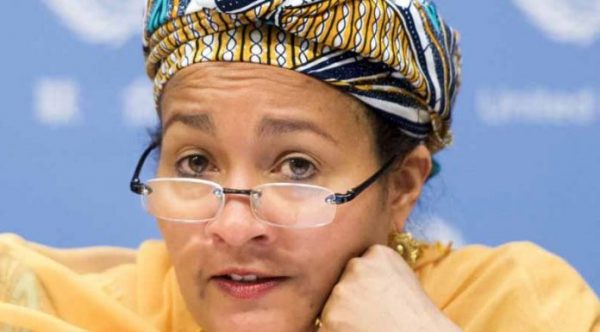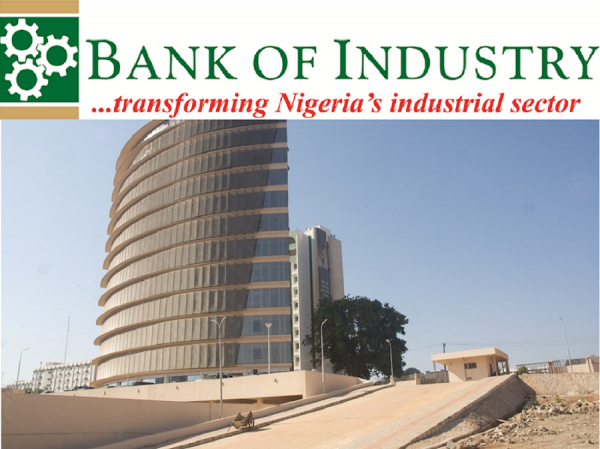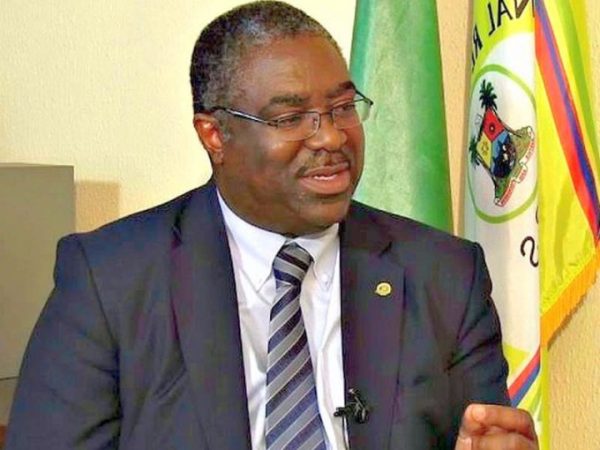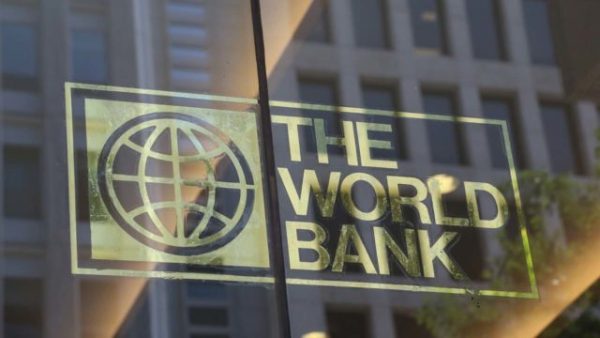Amina Mohammed: Nigeria Now Heavily Indebted

The Deputy Secretary-General of the United Nations (UN), Amina Mohammed, has stated that two-time Minister of Finance, Ngozi Okonjo-Iweala, spent years to get Nigeria out of debt, but the country is now back to worrying levels of debt.
Speaking at the International Monetary Fund (IMF) and the UN ‘working together conversation’ last Tuesday, the former Nigerian minister of environment expressed her worry on the rising level of debt in Nigeria and the rest of Africa.
She said the UN and IMF must have better conversations on the demands of a growing economy seeking ways to making growth better and inclusive.
“Public resources are always going to be important, and so are the ODA and the private sector. But I think we still haven’t yet got quite the solution, and I hope that the work that we do together will open up that space to think more on how to leverage that.
“As I was coming up from New York, some of the concerns that came up from the meeting we had in China just recently and reports that we have like the debt issues are really big, I mean, having experienced what it was for Okonjo-Iweala to get debt relief.
“It took her a few years to convince people, and we are now back again in my country with a level of debt that is worrying, but it’s happening all over Africa. Is that the way we want to go?
“I think we really need to sit down and have a better conversation about growing the economy, its inclusiveness and success, because stability is needed more than ever today, across our countries and where we are working on that,” she stated.
According to The Cable, in the conversation with the Managing Director of the IMF, Christine Lagarde, Mohammed had agreed with Lagarde that Okonjo-Iweala was very influential in the debt relief Nigeria secured in 2006.
Before 2005, Nigeria had an external debt stock of $36 billion, which had been carried over from the military years dating back to 1985.
In October 2005, with Okonjo-Iweala as finance minister, Nigeria and the Paris Club announced a final agreement for debt relief worth $18 billion and an overall reduction of Nigeria’s external debt stock by $30 billion.
The deal was completed on April 21, 2006, when Nigeria made its final payment and its books were cleared of any Paris Club debt, bringing Nigeria’s external debt profile to just $3 billion while domestic debt was only about N1 trillion.
As at June 30, 2018, Nigeria’s total debt profile, according to the Debt Management Office (DMO), had risen to $73.21 billion or N22.38 trillion.
The mother of six also spoke about every of the 17 goals that make up the SDGs as her children, saying all were equally important for the future of the world.
She added that when she was appointed minister of environment in Nigeria, she was seen as the dustbin lady, because the people did not see the real value of her office.
“I have to tell you, when I went back to Nigeria as minister of environment, my state was saying, was it environment they gave you? That is the dustbin lady. They did not even get that environment was broader than just waste disposal,” she told Lagarde and a room full of development experts.
She said climate change is important, so is gender parity and inclusion for youths.
Mohammed stated that “the average age of entry into the United Nations is 45,” adding that the UN is working hard to change this, and include young people in its working process.








